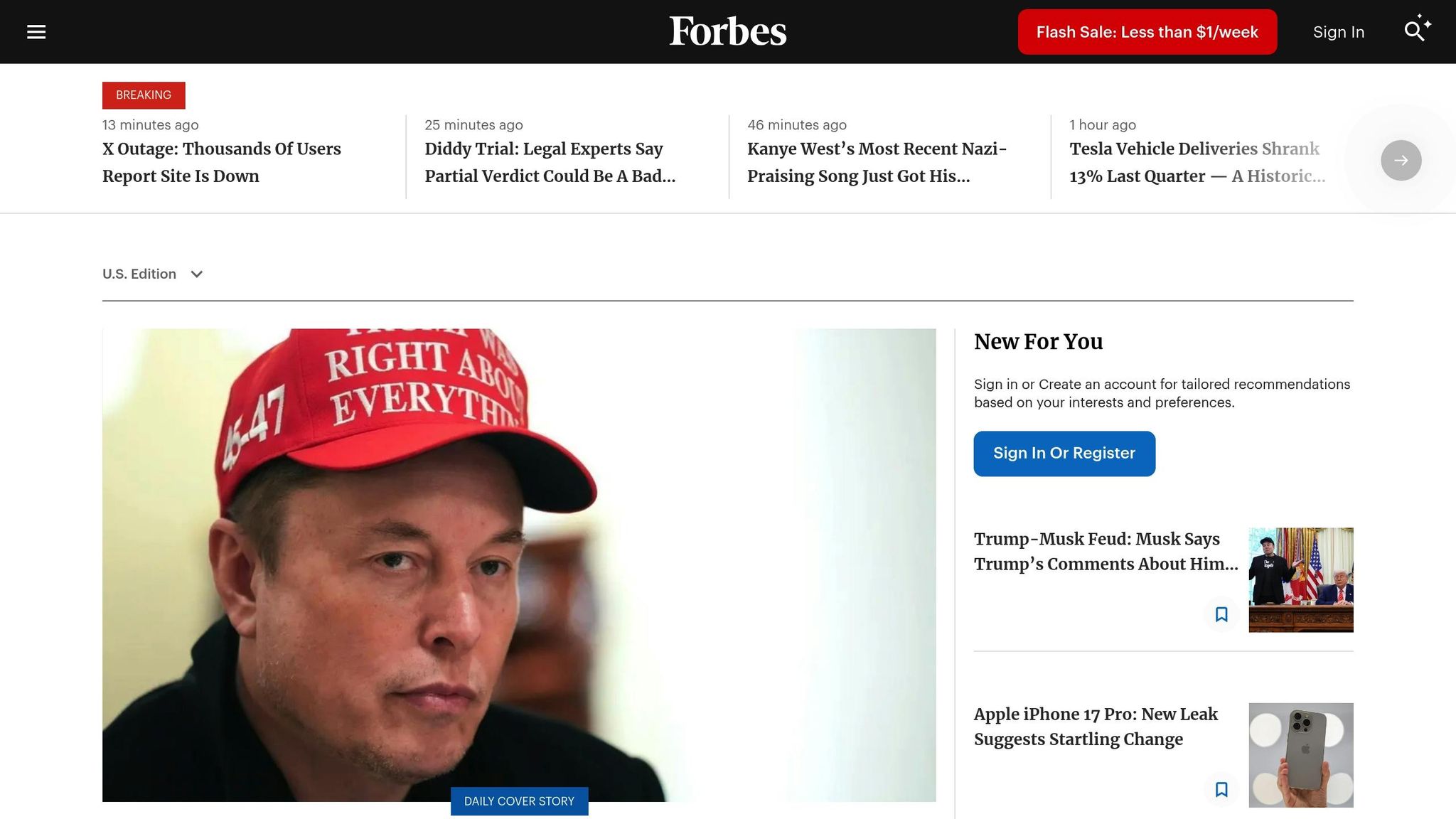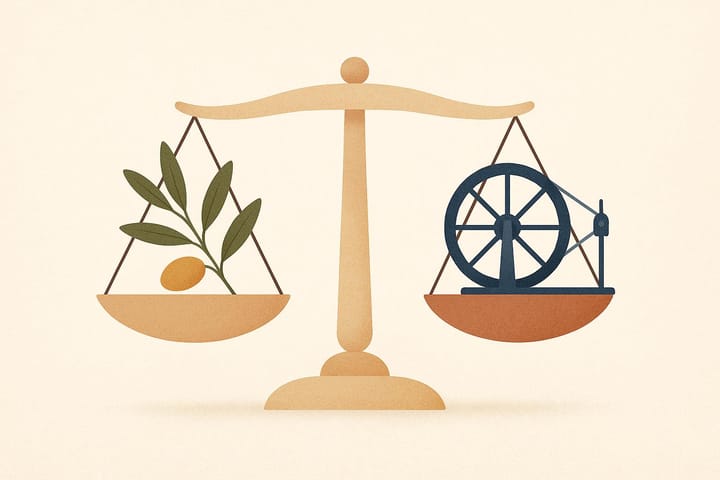Serena Williams: Power, Focus, and Emotional Discipline
Explore how a tennis icon exemplifies resilience, emotional control, and leadership that inspires change both on and off the court.

Serena Williams embodies resilience, focus, and emotional control, both on and off the tennis court. With 23 Grand Slam singles titles and nearly £80 million in prize money, she has not only dominated tennis but also set an example of leadership in business and advocacy. Her journey from setbacks, such as being ranked 172nd in the world in 2011, to reclaiming her position at the top shows her ability to turn challenges into opportunities.
Her leadership extends beyond sport. Through Serena Ventures, launched in 2017, she has invested in over 60 companies, with 79% of those backing underrepresented founders. She uses her platform to address systemic issues, from gender pay gaps to racial inequalities, and shares personal struggles, like her health challenges, to inspire others. Her approach highlights the importance of mental strength, clear decision-making, and driving change through action.
Key takeaways from her leadership style:
- Resilience: Turning setbacks into comebacks, like her return after a life-threatening embolism.
- Mental toughness: Staying composed under pressure, as seen in her iconic 2003 Australian Open performance.
- Empowering others: Using her success to support underrepresented communities through investments and advocacy.
- Emotional control: Managing public scrutiny and personal challenges with self-awareness and growth.
Serena’s story shows how discipline, self-belief, and using one's platform for impact can inspire meaningful change.
Serena Williams On Life After Tennis | Forbes

Athletic Success as a Leadership Model
Serena Williams' record of 23 Grand Slam singles titles is a testament to her extraordinary dedication and the leadership qualities she embodies. Her ability to dominate her sport for decades reflects essential traits like discipline, strategic thinking, and performing under pressure - skills that are just as vital in leadership roles beyond the tennis court.
Long-term Performance and Resilience
Williams' career is a masterclass in thinking long-term. While many focus on short-term gains, her sustained success over decades required constant adjustment and growth. This mirrors the challenges modern leaders face in navigating ever-changing environments while delivering consistent results.
In 2011, after surviving a life-threatening pulmonary embolism, Williams made an extraordinary comeback, winning the Wimbledon Championship just a year later in 2012. Her ability to view setbacks not as failures but as opportunities to learn and grow is a lesson in resilience.
"I really think a champion is defined not by their wins but by how they can recover when they fall." - Serena Williams
Williams’ approach to long-term goals offers a valuable roadmap for leaders. Instead of focusing solely on individual victories, she pursued broader milestones, breaking her ambitious objectives into smaller, manageable goals. This method not only kept her motivated but also aligns with research suggesting that breaking down goals can enhance performance by 10–15%. Her unwavering commitment to improvement over complacency mirrors the mindset of effective leaders who are always evolving.
Clear Thinking Under Pressure
Resilience aside, Williams also excelled in maintaining clarity under pressure - a skill that translates seamlessly to leadership. She famously described tennis as "70% mental", highlighting the importance of mindset in high-stakes situations, whether on the court or in the boardroom.
A standout example of this was the 2003 Australian Open semifinal against Kim Clijsters. Facing match points and the brink of elimination, Williams stayed composed, focusing on each point and turning the match - and ultimately the tournament - into a victory. Her use of visualisation and mindfulness techniques to stay centred despite distractions is a strategy backed by research. Studies show that such practices can improve performance metrics by up to 20%, and that it takes an average of 23 minutes to regain focus after being distracted, with performance dropping by as much as 50%. Williams’ ability to manage pressure and use it to her advantage demonstrates how controlled stress can become a powerful tool in professional settings.
"Pressure is a privilege." - Serena Williams
Emotional Control as a Leadership Skill
Serena Williams' ability to manage her emotions during high-pressure situations offers a valuable lesson for leaders: setbacks can be reframed as opportunities, provided one maintains composure. Her approach to emotional regulation shows how measured responses can turn potential failures into moments of growth, shaping a resilient and effective leadership style. This ability to stay composed not only fuels her remarkable comebacks but also defines her approach to public challenges.
Bouncing Back from Defeats and Injuries
Williams' career is a masterclass in turning adversity into strength. After suffering a severe injury and life-threatening pulmonary embolism in 2011, she returned stronger than ever, clinching the Wimbledon title in 2012.
Her perspective on failure reveals a mindset crucial for leadership. To Williams, setbacks aren’t roadblocks - they’re motivation to push harder and aim higher. For instance, after missing the chance to achieve a historic Grand Slam title at the 2015 U.S. Open, she didn’t dwell on the loss but maintained her focus on future goals.
"When you lose, you get up." - Serena Williams
This mindset mirrors the way effective leaders handle challenges in the business world. Resilience, as Williams demonstrates, isn’t about avoiding failure; it’s about how quickly and effectively you recover. Another key to her sustained success is her ability to set clear boundaries between her professional and personal life.
Just as important is her skill in managing external pressures.
Handling Public and Personal Expectations
Williams' strategies for dealing with public scrutiny highlight a level of emotional intelligence that leaders can learn from. She has mastered the art of focusing on facts rather than emotions during tense situations.
Reflecting on a particularly heated moment in 2009, she displayed notable self-awareness:
"Last night everyone could truly see the passion I have for my job. Now that I have had time to gain my composure, I can see that while I don't agree with the unfair line call, in the heat of battle I let my passion and emotion get the better of me and as a result handled the situation poorly." - Serena Williams
Rather than letting pressure overwhelm her, Williams reframes it as motivation, using it to sharpen her focus and improve her performance:
"Usually I'm like, 'Oh my God, I have to defend.' This time I'm going to be cool with it… It's more a calming [approach]. I'm taking things in stride as opposed to expecting things that are to come." - Serena Williams
She also recognises that much of the pressure comes from within. By developing relaxation techniques, she ensures she stays in her optimal performance zone, understanding that external expectations only hold power if internalised.
Additionally, Williams has prioritised her mental well-being by establishing firm boundaries:
"Mental fitness for me is just really learning to shut down. I have serious boundaries, and I don't let anyone cross those boundaries." - Serena Williams
Her ability to reflect and grow from controversial moments further illustrates her emotional maturity. Speaking about past experiences, she remarked:
"I think the whole point of learning from your mistakes is not to do the same thing. I definitely would, I think, have a more professional way of voicing my opinion... I want to get another bad line call so I can get some more practice and see how I do. That would be awesome. OK, this is my one moment here. Yeah, so I probably would even smile." - Serena Williams
Williams' evolution in handling pressure and setbacks offers a blueprint for leaders aiming to balance emotional control with professional growth.
Creating Change Through Personal Stories
Serena Williams' impact reaches far beyond the tennis court. Her openness in sharing her personal experiences has sparked important conversations around diversity, gender equality, and representation - not just in sports, but across society. By choosing to make her struggles public, she has turned her platform into a powerful tool for change, using her voice to inspire and connect.
Using Personal Stories to Motivate Others
Williams understands the strength in vulnerability. She has spoken candidly about deeply personal challenges, including her emergency caesarean, subsequent surgeries for lung clots, and struggles with postpartum depression. These revelations remind us that even elite athletes face profound difficulties, and her honesty encourages other mothers to speak up and know they are not alone.
This kind of storytelling fosters connection. Williams doesn’t try to appear invincible; instead, she shows how to face life’s challenges with resilience and purpose.
In 2021, her partnership with Secret Deodorant turned her personal commitment into action. The "Just Watch Me" campaign during the Summer Olympics didn’t just urge viewers to support women’s sports - it also included a pledge of approximately £120,000 to fund girls' sports programmes. Williams used her influence to drive both awareness and direct support.
"We have to support them, encourage them. We have to support our girls." - Serena Williams
Her stories focus on breaking barriers and embracing possibilities. Drawing from her sister Venus’s wisdom, she often reminds her audience:
"My sister Venus once said that when someone out there says you can't do something, it is because they can't do it. But I did do it. And so can you." - Serena Williams
Her openness not only inspires individuals but also fuels larger conversations about diversity and equity.
Leading Conversations on Diversity
Through her personal journey, Williams has redefined what diversity looks like in professional tennis, a sport long dominated by white, privileged players. Alongside her sister Venus, she broke through racial and gender barriers, inspiring a new generation of players like Naomi Osaka, Coco Gauff, and Frances Tiafoe.
Williams doesn’t shy away from addressing systemic inequalities. She has been a vocal advocate for closing the gender pay gap, highlighting that black women earn just 63% of what men are paid. Despite being named the world’s highest-paid female athlete by Forbes, she ranked only 51st overall, far behind her male peers. In 2017, she wrote an op-ed for Fortune, urging women to "fight for a seat at the table" and push for equity.
"Black women: Be fearless. Speak out for equal pay. Every time you do, you're making it a little easier for a woman behind you." - Serena Williams
Williams sees her success as a way to create opportunities for others. Through the Serena Williams Fund, she champions education, particularly for girls and underprivileged youth, by supporting mentorship and educational initiatives.
Her collaboration with Nike amplifies her advocacy. She highlights Nike’s Athlete Think Tank, which focuses on women supporting women to drive progress. Addressing the double standards women face, she has said:
"If we (women) show emotion, we're called dramatic. If we want to play against men, we're nuts. And if we dream of equal opportunity, delusional. When we stand for something, we're unhinged." - Serena Williams
Williams has also become a prominent voice for maternal health, particularly for black women, drawing attention to the heightened risks they face during childbirth. Her own medical complications have brought urgency to this issue.
Her story, from growing up in Compton to becoming a tennis icon, serves as proof that barriers can be overcome:
"For me, it was a question of resilience. What others marked as flaws or disadvantages about myself – my race, my gender – I embraced as fuel for my success. I never let anything or anyone define me or my potential. I controlled my future." - Serena Williams
Williams balances realism with hope, recognising the scale of the challenges while remaining steadfast in her belief in change:
"The cycles of poverty, discrimination, and sexism are much, much harder to break than the record for Grand Slam titles." - Serena Williams
Through her storytelling, Williams has turned personal struggles into collective progress. She demonstrates how leaders can use their experiences to inspire action and create meaningful change that extends far beyond their immediate reach.
Comparison Table: Serena's Leadership Traits vs. Standard Models
Serena Williams' leadership style is a fascinating blend of traditional frameworks and her own brand of resilience and determination. Drawing from her experiences on and off the court, she has crafted an approach that is both personal and impactful.
| Leadership Aspect | Serena Williams' Approach | Transformational Leadership | Servant Leadership |
|---|---|---|---|
| Core Philosophy | "I play for myself, but also for a purpose greater than me" | Inspires followers to go beyond self-interest for the collective good | "The servant-leader is servant first… It begins with the natural feeling that one wants to serve, to serve first" – Robert Greenleaf |
| Handling Setbacks | "I don't like to lose at anything, yet I have grown the most, not from victories, but setbacks" | Turns challenges into opportunities to inspire others | Focuses on helping team members recover and grow through difficulties |
| Mental Resilience | Prioritises mental strength to overcome challenges | Encourages intellectual stimulation and individual consideration | Promotes emotional healing and community awareness |
| Empowerment Style | Direct mentorship through foundation work and scholarships | Leads by example and encourages fresh perspectives | Focuses on others' growth and development, often placing it above personal goals |
| Boundary Setting | "I set firm boundaries" | Balances authority with inspiring confidence | Balances serving others with self-care and stewardship |
| Decision Making | "Dealing with strong personalities her entire life... Serena always made it clear that the ultimate decisions would be hers" | Welcomes participation but maintains a clear vision | Involves the community in decisions through listening and empathy |
| Response to Adversity | Early setbacks instilled a relentless work ethic | Uses challenges to motivate the team | Sees adversity as an opportunity to support and uplift others |
This table underscores how Serena’s leadership blends personal excellence with a commitment to empowering others. Her approach doesn’t fit neatly into traditional models but instead carves out a unique space that reflects her authenticity.
One of the standout features of Serena’s leadership is her mental toughness. While transformational leaders might inspire through vision and servant leaders focus on supporting others, Serena leads by example, showing vulnerability and strength in equal measure. Her perspective on handling pressure is a clear example of this:
"Even if you're going through something in life, you can't rush through it instantly. Take it one moment at a time. It's the same on a tennis court. You have to take it one point at a time."
Her venture capital work through Serena Ventures further highlights this hybrid style. With 79% of Fund 1 investments directed towards underrepresented founders, including 54% for women, 47% for Black founders, and 11% for Latino founders, Serena combines a vision for systemic change with a hands-on approach to uplifting others.
Serena’s leadership evolution demonstrates that modern leaders can successfully merge proven frameworks with their own strengths. Her balance of personal discipline, mentorship, and advocacy for change offers a roadmap for those who aim to excel individually while elevating others. Neither transformational nor servant leadership alone captures this blend, but her approach provides a compelling alternative.
"When I mentor founders one thing that I find myself giving over and over again is to just dust yourself off and don't stop...VC is interesting - it's a tough business, and then as a founder starting a new company, you have to show up 28 hours out of 24...You win a few, you lose a few. You get knocked down, and you get right back up."
Conclusion: Leadership Lessons from Serena Williams
Serena Williams' career offers lessons in leadership that extend far beyond the tennis court. Her rise to becoming one of the most formidable players of her time illustrates how strength, focus, and emotional control can elevate both individual achievements and collective influence.
Williams has repeatedly shown how resilience can turn setbacks into opportunities for growth. This perspective is invaluable for leaders who must navigate the inevitable challenges that arise within organisations.
Her insight that "Tennis is [played] every day, you have to do it every day. You have to train, and business is the same. It is exactly the same. You have to be disciplined" highlights the importance of consistency. Whether in sport or business, sustained effort and discipline are the cornerstones of long-term success. Leaders who adopt this approach can achieve steady results rather than relying on sporadic bursts of energy. This unwavering commitment is a defining trait of her leadership style.
Another key aspect of her journey is the balance between decisive leadership and resilience. Williams demonstrates how effective leaders can combine authority with support, a skill that is particularly valuable when navigating complex situations.
Perhaps the most striking evolution in her leadership is the shift from personal excellence to empowering others. Through Serena Ventures, which allocates 78% of its funding to women and people of colour, she exemplifies how leaders can use their platforms to drive meaningful change. Her belief that "The success of one woman should be the inspiration of the next" reflects a leadership philosophy that extends beyond personal triumphs to create a lasting, systemic impact.
Emerging leaders can draw from her example by cultivating self-confidence, maintaining daily discipline, learning from challenges, and uplifting others. Her career underscores that leadership isn’t about being flawless - it’s about perseverance, growth, and staying true to your values while encouraging others to achieve their best.
"I think in life you should work on yourself until the day you die"
This relentless commitment to improvement, paired with her ability to balance personal success with a broader societal impact, provides a model for leaders seeking to drive meaningful change. Serena Williams' story doesn’t just redefine what it means to excel individually - it inspires a broader transformation in how leadership can elevate everyone.
FAQs
How has Serena Williams applied her tennis experience to her leadership in business and advocacy?
Serena Williams has channelled the lessons from her illustrious tennis career into a leadership approach built on resilience, focus, and an unyielding pursuit of success. These qualities now underpin her entrepreneurial efforts and her advocacy, particularly in promoting gender equality and supporting women in both sport and business.
Her knack for staying calm under pressure, paired with her dedication to constant growth, has cemented her status as a leadership icon. Beyond the court, Serena continues to inspire others to tackle challenges with determination and self-assurance.
How does Serena Williams stay emotionally composed and resilient during intense matches?
Serena Williams uses a mix of deep breathing, positive self-talk, and mindfulness techniques to keep her focus sharp and her composure intact, even when the pressure is on. By anchoring herself in the present and practising relaxation methods, she manages to maintain emotional control during intense moments.
These approaches don’t just help her stay steady - they also enable her to direct her energy towards delivering top-tier performances, highlighting her incredible determination and mental toughness.
How does Serena Williams use her influence to promote diversity and gender equality beyond tennis?
Serena Williams has consistently used her influence to champion diversity and gender equality, tackling pressing issues like racism, sexism, and the fight for equal opportunities. She has been outspoken about the gender pay gap in sports, shed light on the unique challenges faced by Black women, and brought attention to broader social justice concerns.
Outside of her tennis career, Serena partners with various brands to amplify these causes, while her social media platforms serve as a powerful tool to inspire and drive change. Her advocacy also extends to areas like healthcare and education, reflecting her dedication to building a more equitable and inclusive world.



